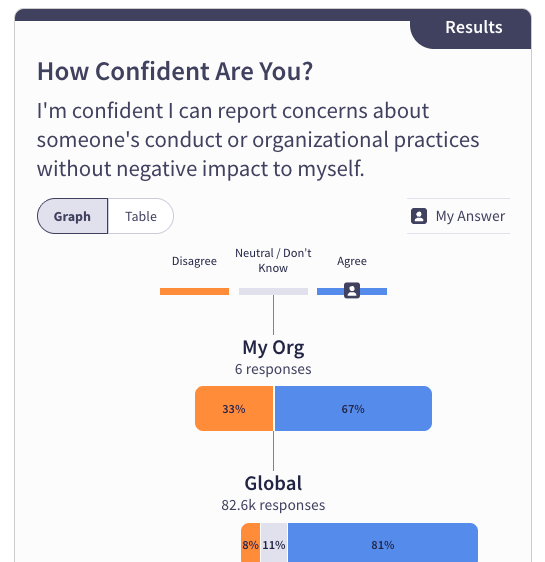
Speaking Up with Confidence and Integrity
For an organization to improve its workplace culture, leaders need visibility into problem areas and weak spots. While workplace culture analytic software and employee engagement surveys can be powerful tools, sometimes a straightforward written or verbal notice can act as a catalyst for real change. Employees need to feel comfortable speaking up about harassment situations, voicing concerns about management practices, or expressing dissatisfaction with certain workflows without fear of retaliation or judgment.
Microlesson Description
This microlesson models how employees should encourage co-workers to speak up when they have a concern or they experience a problematic situation. We offer learners the tools and language needed to file an objective, factual complaint that will not be met with reprisal. The microlesson also includes a link to, or information about, the company's reporting hotline system.
Key Concepts
- Why employees should report issues, and what issues merit reporting
- Proper language to use when speaking up
- How to keep a complaint report factual and clinical
Microlesson Features
- Employee sentiment pulsing questions that provide leaders with insights into their workforce's core cultural competencies
- Emtrain's Expert Answers tool, enabling employeees to submit anonymous questions about sensitive issues.
- Rich, contemporary video scences illustrating key concepts through realistic scenarios
- A data driven, skill-based approach to eLearning that establishes a shared language for employees.

Related Resources
Related Trainings
Frequently Asked Questions
Below are answers to common questions that employees and managers have about this topic. These FAQs provide a preview of what you’ll learn in this microlesson and why it matters.



